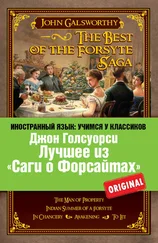As I may never have occasion to mention her again, I may as well tell you here that she was at this time privately engaged to Richard Wilson – a secret, I believe, to everyone but themselves. That worthy student was now at Cambridge, where his most exemplary conduct and his diligent perseverance in the pursuit of learning carried him safely through, and eventually brought him with hard-earned honours, and an untarnished reputation, to the close of his collegiate career. In due time he became Mr. Millward’s first and only curate – for that gentleman’s declining years forced him at last to acknowledge that the duties of his extensive parish were a little too much for those vaunted energies which he was wont to boast over his younger and less active brethren of the cloth [228]. This was what the patient, faithful lovers had privately planned and quietly waited for years ago; and in due time they were united, to the astonishment of the little world they lived in, that had long since declared them both born to single blessedness; affirming it impossible that the pale, retiring bookworm should ever summon courage to seek a wife, or be able to obtain one if he did, and equally impossible that the plain-looking, plain-dealing, unattractive, unconciliating Miss Millward should ever find a husband.
They still continued to live at the vicarage, the lady dividing her time between her father, her husband, and their poor parishioners, – and subsequently her rising family; and now that the Reverend Michael Millward has been gathered to his fathers, full of years and honours, the Reverend Richard Wilson has succeeded him to the vicarage of Linden-hope, greatly to the satisfaction of its inhabitants, who had so long tried and fully proved his merits, and those of his excellent and well-loved partner.
If you are interested in the after fate of that lady’s sister, I can only tell you – what perhaps you have heard from another quarter – that some twelve or thirteen years ago she relieved the happy couple of her presence by marrying a wealthy tradesman of L—; and I don’t envy him his bargain. I fear she leads him a rather uncomfortable life, though, happily, he is too dull to perceive the extent of his misfortune. I have little enough to do with her myself: we have not met for many years; but, I am well assured, she has not yet forgotten or forgiven either her former lover, or the lady whose superior qualities first opened his eyes to the folly of his boyish attachment.
As for Richard Wilson’s sister, she, having been wholly unable to recapture Mr. Lawrence, or obtain any partner rich and elegant enough to suit her ideas of what the husband of Jane Wilson ought to be, is yet in single blessedness. Shortly after the death of her mother she withdrew the light of her presence from Ryecote Farm, finding it impossible any longer to endure the rough manners and unsophisticated habits of her honest brother Robert and his worthy wife, or the idea of being identified with such vulgar people in the eyes of the world, and took lodgings in – the county town, where she lived, and still lives, I suppose, in a kind of close-fisted, cold, uncomfortable gentility, doing no good to others, and but little to herself; spending her days in fancy-work and scandal; referring frequently to her ‘brother the vicar,’ and her ‘sister, the vicar’s lady,’ but never to her brother the farmer and her sister the farmer’s wife; seeing as much company as she can without too much expense, but loving no one and beloved by none – a cold-hearted, supercilious, keenly, insidiously censorious old maid.
Though Mr. Lawrence’s health was now quite re-established, my visits to Woodford were as unremitting as ever; though often less protracted than before. We seldom talked about Mrs. Huntingdon; but yet we never met without mentioning her, for I never sought his company but with the hope of hearing something about her, and he never sought mine at all, because he saw me often enough without. But I always began to talk of other things, and waited first to see if he would introduce the subject. If he did not, I would casually ask, ‘Have you heard from your sister lately?’ If he said ‘No,’ the matter was dropped: if he said ‘Yes,’ I would venture to inquire, ‘How is she?’ but never ‘How is her husband?’ though I might be burning to know; because I had not the hypocrisy to profess any anxiety for his recovery, and I had not the face to express any desire for a contrary result. Had I any such desire? – I fear I must plead guilty; but since you have heard my confession, you must hear my justification as well – a few of the excuses, at least, wherewith I sought to pacify my own accusing conscience.
In the first place, you see, his life did harm to others, and evidently no good to himself; and though I wished it to terminate, I would not have hastened its close if, by the lifting of a finger, I could have done so, or if a spirit had whispered in my ear that a single effort of the will would be enough, – unless, indeed, I had the power to exchange him for some other victim of the grave, whose life might be of service to his race, and whose death would be lamented by his friends. But was there any harm in wishing that, among the many thousands whose souls would certainly be required of them before the year was over, this wretched mortal might be one? I thought not; and therefore I wished with all my heart that it might please heaven to remove him to a better world, or if that might not be, still to take him out of this; for if he were unfit to answer the summons now, after a warning sickness, and with such an angel by his side, it seemed but too certain that he never would be – that, on the contrary, returning health would bring returning lust and villainy, and as he grew more certain of recovery, more accustomed to her generous goodness, his feelings would become more callous, his heart more flinty and impervious to her persuasive arguments – but God knew best. Meantime, however, I could not but be anxious for the result of His decrees; knowing, as I did, that (leaving myself entirely out of the question), however Helen might feel interested in her husband’s welfare, however she might deplore his fate, still while he lived she must be miserable.
A fortnight passed away, and my inquiries were always answered in the negative. At length a welcome ‘yes’ drew from me the second question. Lawrence divined my anxious thoughts, and appreciated my reserve. I feared, at first, he was going to torture me by unsatisfactory replies, and either leave me quite in the dark concerning what I wanted to know, or force me to drag the information out of him, morsel by morsel, by direct inquiries. ‘And serve you right,’ you will say; but he was more merciful; and in a little while he put his sister’s letter into my hand. I silently read it, and restored it to him without comment or remark. This mode of procedure suited him so well, that thereafter he always pursued the plan of showing me her letters at once, when ‘inquired’ after her, if there were any to show – it was so much less trouble than to tell me their contents; and I received such confidences so quietly and discreetly that he was never induced to discontinue them.
But I devoured those precious letters with my eyes, and never let them go till their contents were stamped upon my mind; and when I got home, the most important passages were entered in my diary among the remarkable events of the day.
The first of these communications brought intelligence of a serious relapse in Mr. Huntingdon’s illness, entirely the result of his own infatuation in persisting in the indulgence of his appetite for stimulating drink. In vain had she remonstrated, in vain she had mingled his wine with water: her arguments and entreaties were a nuisance, her interference was an insult so intolerable that, at length, on finding she had covertly diluted the pale port that was brought him, he threw the bottle out of the window, swearing he would not be cheated like a baby, ordered the butler, on pain of instant dismissal, to bring a bottle of the strongest wine in the cellar, and affirming that he should have been well long ago if he had been let to have his own way, but she wanted to keep him weak in order that she might have him under her thumb – but, by the Lord Harry, he would have no more humbug – seized a glass in one hand and the bottle in the other, and never rested till he had drunk it dry. Alarming symptoms were the immediate result of this ‘imprudence,’ as she mildly termed it – symptoms which had rather increased than diminished since; and this was the cause of her delay in writing to her brother. Every former feature of his malady had returned with augmented virulence: the slight external wound, half healed, had broken out afresh; internal inflammation had taken place, which might terminate fatally if not soon removed. Of course, the wretched sufferer’s temper was not improved by this calamity – in fact, I suspect it was well nigh insupportable, though his kind nurse did not complain; but she said she had been obliged at last to give her son in charge to Esther Hargrave, as her presence was so constantly required in the sick-room that she could not possibly attend to him herself; and though the child had begged to be allowed to continue with her there, and to help her to nurse his papa, and though she had no doubt he would have been very good and quiet, she could not think of subjecting his young and tender feelings to the sight of so much suffering, or of allowing him to witness his father’s impatience, or hear the dreadful language he was wont to use in his paroxysms of pain or irritation.
Читать дальше
Конец ознакомительного отрывка
Купить книгу












